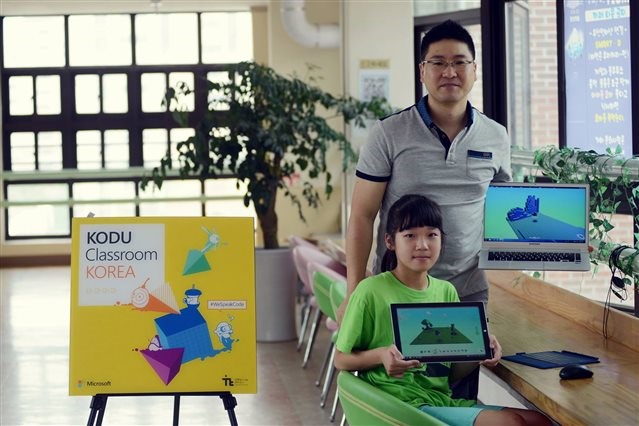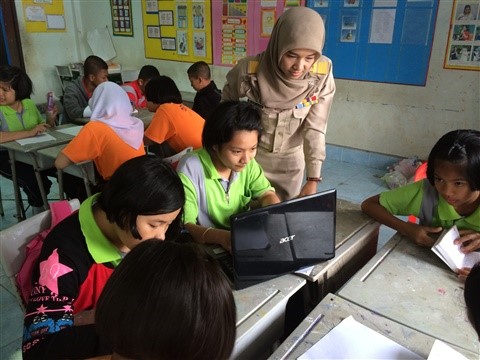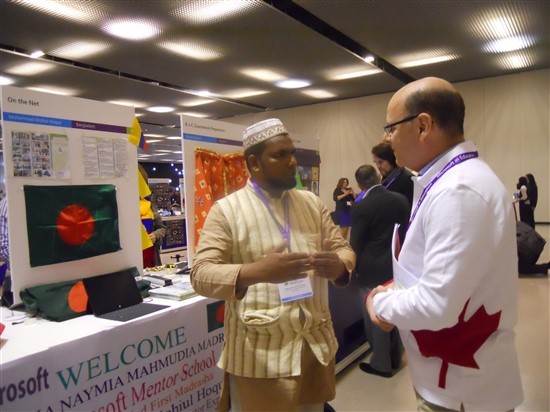Get to know five Asia educators transforming the Asian classroom today
As technology has become an integral part of people’s daily lives around the world, we’re seeing a growing demand – from students, parents, teachers, governments, and nonprofits – to teach youth not only how to use technology, but also how to create technology to help them become the innovators and drivers of growth and opportunity in their communities.
Underlining the importance of technology in education is Bett Asia Leadership Summit, an annual conference for leading educators to discuss about the future of education technologies. In line with our long-standing commitment to education, Microsoft is the worldwide partner of this summit. This year’s conference, held in November 2015 in Singapore, has attracted some 900 educators from across Asia.
Many leading educators in Asia understand the role technology can play in redefining learning and are using technology in the most inspiring of ways to motivate students to learn. Here are five such inspiring educators in Asia:
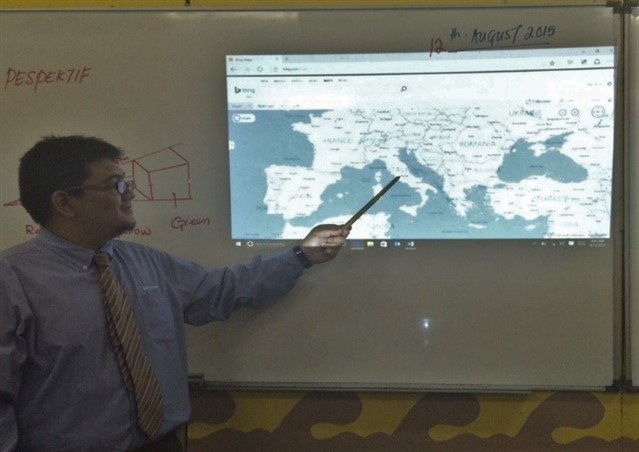
1. In Brunei, a typical lesson would revolve around textbooks and the usage of whiteboards. Abdul Walid Misli, a teacher at Puni Primary School, is is always exploring ways that technology can be integrated into the classroom as a learning tool. Besides teaching English and Science, he took up the mantle of motivating young children to learn Computer Science. Walid said, “I think it’s important for students to be exposed to a wide variety of technologies, and let them understand that computers are meant for more than just fun and games. The sense of achievement they gain from using technology can help spark greater curiosity in what they’re learning, and help them focus on the skills they need to acquire. Recently, Walid adopted the use of Skype in the Classroom to enable his students to communicate with young people in other schools and in other countries, helping them pick up new skills by literally “going beyond” the classroom.
2. Youngsang Cho, an elementary school teacher in South Korea, strongly believes that computer skills and coding essential skills for youth in a digital world, regardless of their career paths. He was part of a recent nationwide Virtual Collaborative Classroom held in April, during which 2,300 students created games collaboratively using Microsoft Kodu Game Lab.
3. According to an English Proficiency Index (EF EPI) study conducted on 60 countries and territories where English is not the mother tongue, Thailand’s English proficiency hit near-bottom, landing in the 56th Despite the government’s increasing emphasis on mastering English, the country is still facing an uphill task in doing so, particularly in areas where students pick up English only as a third or fourth language. Khadiyah Amanakun, an English teacher in Betong, Yala, may have found the perfect answer to this: technology in the classroom. After she designed her own English-learning programme “5 Steps to Mastering English Public Speaking” project, her school’s English scores for entrance exams improved, and one of her students even clinched fourth place in a national English speech contest.
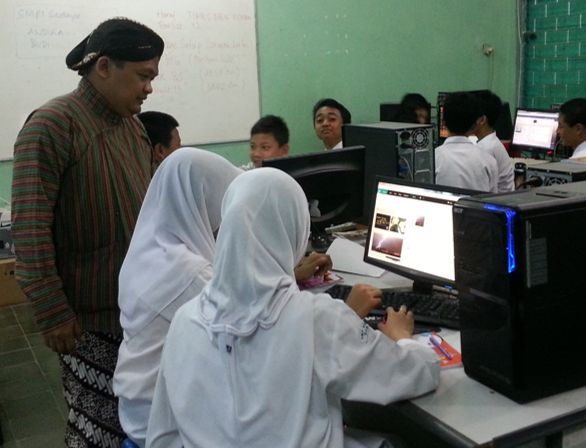 4. In Yogyakarta, a city renowned for being the centre of education in Indonesia, there is a growing awareness of the benefits of Computer Science education. Elementary school teacher Muhammad Zulham is helping to pave the way for young Indonesians to learn computing skills and discover their passion for technology, despite infrastructure and resource issues. is constantly exploring how new technology and coding platforms such as Kodu Game Lab can be used to keep his students engaged. His lessons at Sedayu 1 Junior High School are often a hive of activity, and it is not uncommon to see students huddled in front of computer screens learning how to create their own games.
4. In Yogyakarta, a city renowned for being the centre of education in Indonesia, there is a growing awareness of the benefits of Computer Science education. Elementary school teacher Muhammad Zulham is helping to pave the way for young Indonesians to learn computing skills and discover their passion for technology, despite infrastructure and resource issues. is constantly exploring how new technology and coding platforms such as Kodu Game Lab can be used to keep his students engaged. His lessons at Sedayu 1 Junior High School are often a hive of activity, and it is not uncommon to see students huddled in front of computer screens learning how to create their own games.
5. Located in the largest industrial area of Chittagong, Bangladesh, the school Naziria Naymia Mahmudia Madrasa is a beacon of hope for the low-income workers who are unable to afford education for their children. Currently, over 1,000 students are enrolled at the madrasa (the Arabic word for ‘educational institution’) that provides free education for the underprivileged. In recent years, under the watch of Principal Hafez Allama Mohammad Mohiul Hoque, the madrasa has transformed dramatically. With the assistance of the Government of Bangladesh and the British Council, he launched a digital literacy programme ‘Connecting Classrooms’. To promote the rights of girls and women to pursue education and work, Hafez also created a women’s-only ICT course.
Microsoft is committed to partnering with educators on their journey to redefine learning. Core to this mission is creating immersive and inclusive learning experiences that inspire lifelong learning. For students, these experiences stimulate the development of essential life skills like communication, collaboration, critical thinking, and creativity.
As Asian economies and societies become more and more digital, computational thinking becomes of paramount importance. We are empowering educators to create environments in and out of the classroom that guide and nurture student passions, and enable students to achieve beyond their greatest imaginations – making, designing, inventing, building the future.
Find out more about resources teachers can use in the classroom with our new Microsoft Online Educator Community Website a centralized resource and engagement tool for educators that make it easy to access a global network of educators, free interactive training and best practices.



